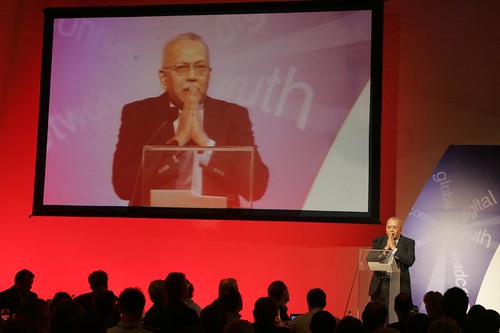MTN South Africa has once again emerged as the country’s top-performing mobile network, securing the highest score in the Q2 2025 MyBroadband Network Quality…
After 10 Years of Blogs, the Future's Brighter Than Ever
From Wired: In the 10 years since the first site known as a “weblog” went online, the blog has matured from a geek niche…
Linklove: what big media can learn from bloggers
The fundamental art of linking is something online media could learn from the blogosphere….
Without linking there wouldn’t be an internet. It’s the web of links that leads a user from website-to-website that essentially creates the thing we know as the world wide web. Many commercial online media publishers hate linking from their websites to the “outside”, especially when there’s a competitor involved. It’s a protective, “walled garden” mentality, prevalent in many traditional media businesses, which doesn’t translate particularly well on the wild world wide web. It’s pretty silly, because linking is the whole point of the web.
This where the blogosphere could teach online publishers a thing or two…. read on
Moneyweb relaunch
One of my favourite websites, Moneyweb, has relaunched, featuring a wide-format design. Their site used to be run by iafrica.com, who lost the contract…
SA's online newspapers set to grow
Francois Nel from the For the Media blog pointed me towards his blog recently (pretty good, I must say). This post in particular caught…

 Nitin Desai, Special Advisor to the Secretary General of the United Nations, had a few original words to say on the new wave of “We Media” sweeping the globe. He says that the key challenge – and this is the original part of what he said – is that we face a challenge in finding a business model that can combine the professionalism of the traditional, established media (fact checking; sources; trained journalists; ethics codes and training etc etc) with what we have on the web – the power of collaborative communities, citizen journalism, blogs, collective intelligence, number power etc etc…
Nitin Desai, Special Advisor to the Secretary General of the United Nations, had a few original words to say on the new wave of “We Media” sweeping the globe. He says that the key challenge – and this is the original part of what he said – is that we face a challenge in finding a business model that can combine the professionalism of the traditional, established media (fact checking; sources; trained journalists; ethics codes and training etc etc) with what we have on the web – the power of collaborative communities, citizen journalism, blogs, collective intelligence, number power etc etc…